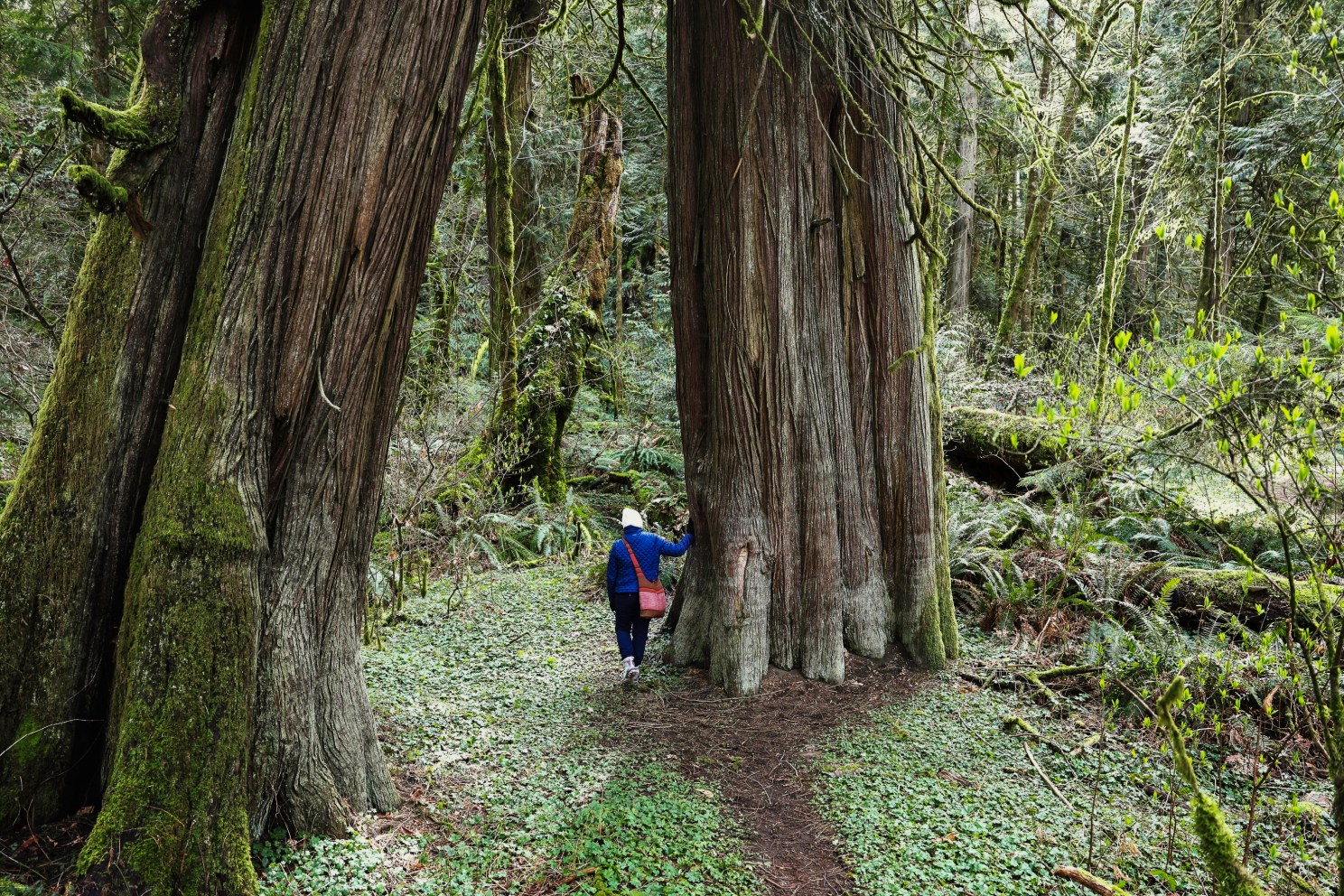Lessons from the land and First Nations in British Columbia

Center for the Study of World Religions Fellow Eugenia Rainey looks more closely at an ancient mother tree, a giant of the forest. This tree is over 1,000 years old and is a valued part of the First Nations culture.
Photo by Ashley Zigman
The practice of pilgrimage often involves a journey into an unknown land, undertaken by individuals seeking to discover new understanding and meaning through the portal of experience. In six intensive days, 14 University students, researchers, and educators traveled to Vancouver Island in Canada’s Pacific Northwest to engage in cultural sharing with Indigenous knowledge holders, scientists, and artists.
These Harvard travelers explored old-growth forests alongside First Nations leaders, experienced the profound language of ancient trees and the natural environments of plants and fungi, and learned from the Indigenous peoples who have lived in harmony on these lands for thousands of years before colonization.
The trip was part of the Center for the Study of World Religions (CSWR) Thinking with Plants and Fungi initiative (TWPF) at Harvard Divinity School. The TWFP initiative engages in academic research and explores the connection between plant and fungal life and the human relationship with these natural environments. This pilgrimage into tribal lands and traditions was also facilitated by a partnership with the Awi’nakola Foundation, an Indigenous-led organization based in Victoria focusing on blending arts and sciences to protect Indigenous territory and sovereignty.
“I am so pleased and proud that the Thinking with Plants and Fungi initiative offers HDS students and staff this rare opportunity to learn from the Awi’nakola Foundation and its Indigenous leaders,” said Professor Charles Stang, director of the Center for the Study of World Religions and professor of Early Christian Thought.
Awi’nakola’s leadership served as guides and worked with local Indigenous Elders and leaders not only to gain traditional permission for the Harvard group to be on native lands but also to allow them to observe and participate in ceremonial gatherings.
“Let us ignite a movement of restoration and renewal. Let us honor the past, engage the present, and courageously envision a future where both people and the land thrive in harmony,” said Awi’nakola Founder Rande Cook. “Together, we will reshape a new legacy grounded in respect, resiliency, and regeneration. This gathering brings communities together to share and reach for pathways forward.”
The Harvard group concluded their visit at the annual Kinship Gathering at the Big House on the grounds of the Royal British Columbia Museum in Victoria. Organized by Awi’nakola, the event was a meeting of the island’s First Nations leaders, advocates, and researchers to share the latest information about new efforts and programs, progress reports about existing programs, and to voice concerns and possible solutions about the community, followed by cultural song and dance.
Sharing experiences and knowledge struck a chord with the University pilgrims. Each day provided new insights about the environment and the people connected to the lands through millennia of sharing stories and traditions.
“We were taught to think in a way that our culture guides us,” said Pacheedaht Elder Bill Jones. “We come into this world to share and give of ourselves to the all.”




